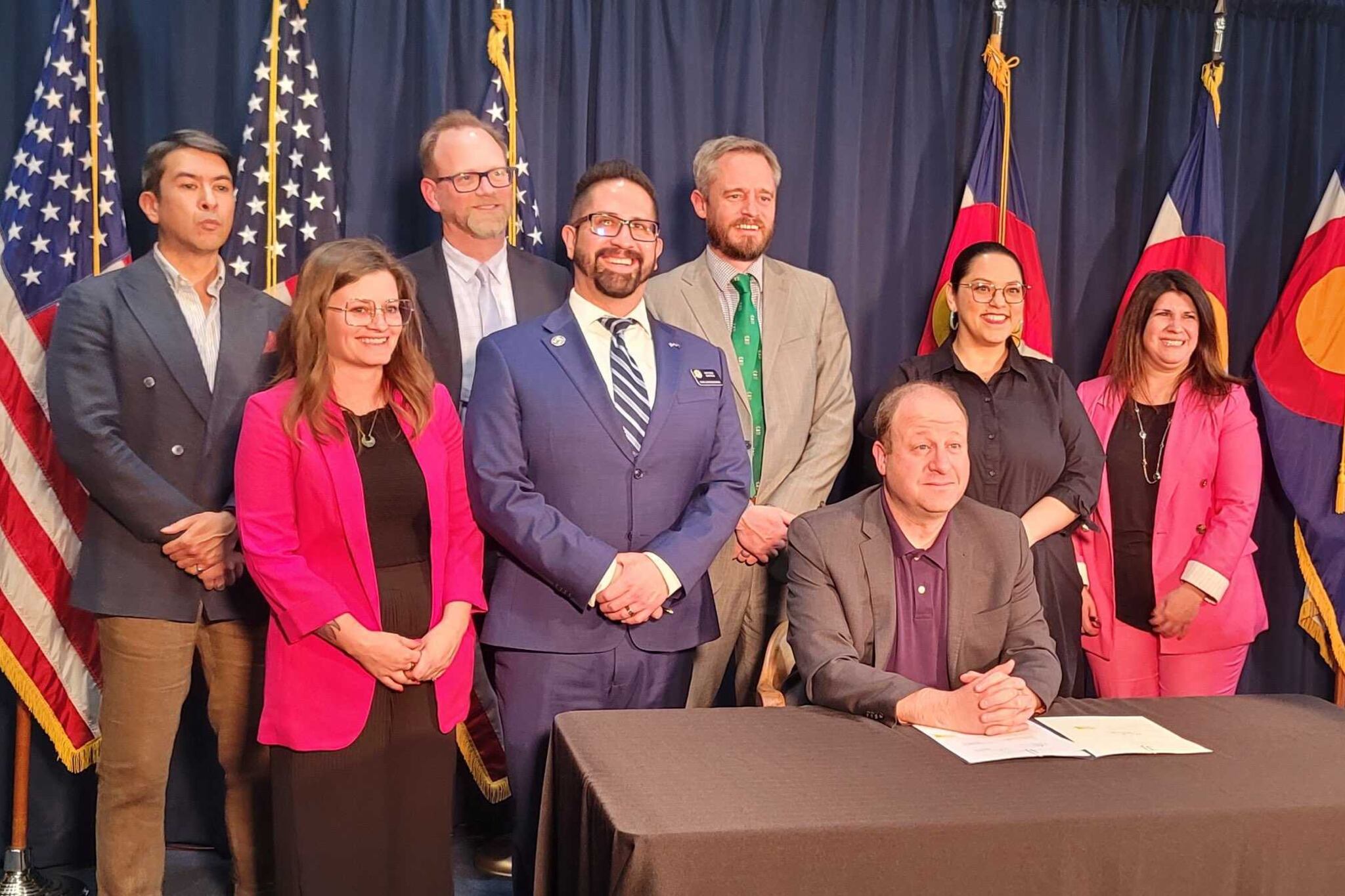On April 12, Colorado Governor Jared Polis signed House Bill 1037 into law.
When the law goes into effect in August, incarcerated people convicted of nonviolent offenses in Colorado can gain one year of “earned time” — time off their sentences or period of parole — for completing an associate or bachelor’s degree, 18 months for a master’s degree, two years for a doctoral degree, and six months for a credential or certificate that requires at least 30 credits.
The number of prison education programs in Colorado and the United States is expected to grow in the next few years with the return of Pell Grants — the federal financial aid for low-income students — for people in prison as of July 1. Pell Grants were eliminated for people in prison with the 1994 federal crime bill. Out of a prison population of around 16,000, only 32 women and 87 men in the Colorado Department of Corrections were enrolled in formal college classes at the end of 2022, according to data Open Campus obtained in a records request.
The bill’s primary sponsor is Rep. Matthew Martinez, a Monte Vista Democrat, who is serving his first term in the Colorado house. The goal of the bill, he said, is to incentivize incarcerated people or people who are on probation to pursue education. The bill won’t be retroactive and will only apply to those who earn degrees or certificates going forward.
Open Campus recently talked with Martinez about the new law he sponsored.
This interview has been edited for length and clarity.
How did you make the leap from higher education to the Colorado state legislature?
I worked in higher education for about 9½ years before I came [to the legislature]. I originally started at Adams State University running their veterans program, and that was actually my first dive into the incarcerated population.
Can you talk a little bit about how you drew on your background in prison education to craft House Bill 1037 and give a brief overview of what the bill entails?
I really tailored this off of my previous work, specifically with the prison education program. Other states have done some version of this. California has a very similar program to this where they grant six months off a sentence for all incarcerated students per degree that they earn. When I started in the legislature, I [thought] the timing is right if I do it this session, especially with the onset of Pell Grants coming back for incarcerated students in July. I crafted this legislation off of California.
Associate and bachelor’s degrees are potentially available through existing programs with state and federal funding. So does the bill mean that there’s talk of expanding access to graduate programs in Colorado prisons? [Editor’s note: Pell Grants can only be used for first-time undergraduate degrees. Adams State currently offers one of the only master’s programs in prison via correspondence, but it’s only available to students who are able to self-pay.)
I totally want expansion … But I think that this sets the ground level and says that this can be done. Also crafted in the bill is the cost savings that this is going to generate since we’re not incarcerating as many people. I didn’t really want that to go back into the general fund. I was like, ‘how do we craft this to make sure that it’s still beneficial to this population?’ So one amendment that got added on in the senate, with my senate sponsor, Sen. Julie Gonzales, who has been an amazing advocate for this population for many years, is to take all of that cost savings and give it directly to the higher educational institutions that are offering these classes so that way they can continue to expand.
One of the criticisms of this bill is that only people who’ve been convicted of nonviolent offenses are eligible. Can you talk a little bit about that? Is this the stepping stone to expand earned time opportunities to more people in the future?
So in regards to that, I really wanted to take a step towards this. Something I’ve always wanted to do [is] when we push this to do a state study and show its effectiveness. Again with onset of Pell and all the reporting that the institutions are going to have to do, the data is going to be readily available. I think that with these nonviolent offenses, you’re talking a lot shorter sentences, and you’re going to see that return on investment really, really quickly, especially including the parole and probation piece.
What do you see as the role of state legislatures in expanding prison education, particularly as it relates to Pell coming back?
We’re primed. We’re in a position that we haven’t been since the ’90s. And we’re able to actually address this issue and have multiple delivery formats at our fingertips to really be able to do true rehabilitation for the students.
Do you have any sense of how many people will actually be able to take advantage of the programs that would allow them to earn time off?
It’s hard to say. We tried to do as much fiscal analysis as we could on that but because it’s a brand new thing, and we haven’t had anything in comparison in 30 years, it was a little bit difficult. When I was at Adams State, I used to say to my staff that every student that has not been able to take courses for the last 30 years but wanted to is now potentially eligible.
A version of this Q&A will appear in College Inside, a newsletter on prison education produced by Open Campus. Chalkbeat Colorado partners with Open Campus on higher education coverage.
Charlotte West is an Open Campus national reporter covering the future of postsecondary education in prison. Got a story tip or a question? Please send it along.






